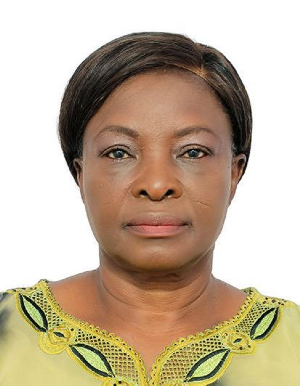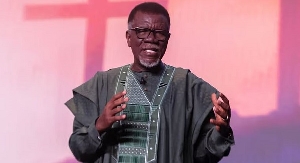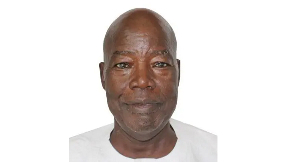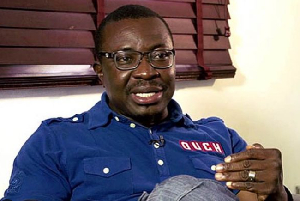The One District One Factory (1D1F) initiative is indeed a brainchild of President Nana Addo Dankwa Akufo-Addo. I thought this point must be clarified for the records.
Apart from Free SHS, one big constant theme in Akufo-Addo's vision since 2008 has been the transformation of Ghana through industrialisation.
For him, Ghana can only be prosperous if we stop exporting our raw materials as we have done since Governor Guggisberg's time and focus on value addition. Thus, he envisioned this 1D1F programme after travelling extensively throughout Ghana, witnessing the abundance of natural resources, like plantains, oil palm, clay, bamboo, tomatoes, oranges, pineapples, coconuts and others. He became convinced that it was possible to set up factories in virtually all districts, leveraging, in most cases, what the area already has to offer and what can be done to add value to it.
Again, he recognised the challenges faced by rural youth who migrate to cities in search of non-existent jobs. President Akufo-Addo sought to create opportunities for value addition and employment in these communities. Build industries to create direct and indirect jobs, and with his wider vision of building quality schools and giving every district a decent hospital, our districts become more attractive to move into, especially for skilled workers with families.
I thought it was important to add my voice to the fact that every major policy initiative of Akufo-Addo was part of his big vision to transform Ghana. Indeed, he believed the only way to tackle the constant depreciation of the cedi was to produce more of what we consume and export more, first targeting our West African region and then Africa's single market and beyond. His was not to look for short-term solutions but to leave a legacy of lasting progress and development for Ghana and generations to come.
Nana Addo did not want to commit the old mistake of the state-owning factories. His idea is for the state to provide incentives and soft loans to the private sector to establish at least one factory in each of Ghana's then 216 districts, focusing on manufacturing, value addition, and exporting processed goods.
To have a close eye on its implementation, an office was set up at the Presidency, and Hon. Mrs Gifty Ohene Konadu, former Deputy Minister of Trade under President JA Kufour, was appointed the head of the secretariat to oversee its implementation.
I must say, this did not initially go down well with the substantive Ministry. However, the President knew 1D1F was a presidential initiative, and he needed to give it the focus and priority, at least to start with the necessary systems to support its growth and sustainability.
The programme was officially launched on 25th August 2017 at Nanaben, a village in Ekumfi District. Happening a day before the ruling party had a national conference at Cape Coast, many Ministers attended the launch, and so did Vice President Dr Mahamudu Bawumia. The only notable Minister who absented himself was the Trade & Industry Minister at the time.
Thereafter, HE Dr Bawumia led a group of business people interested in investing in the 1d1f initiative to China to woo investors to buy into the programme since it was designed as a private sector-led project with the government creating an enabling environment through reliefs like tax waivers and other subsidies.
To ensure its sustainability and give it an enduring character, after it was established, the President then, after a couple of years, decided it was time to move it to the Ministry of Trade and Industry.
The idea never existed anywhere; it was conceived entirely by Nana Addo Dankwa Akufo Addo. It was his brainchild. And no other.
It is very ridiculous for anyone to claim ownership with the forlorn hope of advancing whatever political ambition they think they might still have.
The 1D1F initiative has already shown promising results.
This programme is a testament to President Akufo-Addo's commitment to Ghana's industrialisation and economic growth.
Opinions of Sunday, 24 November 2024
Columnist: Gifty Ohene Konadu















